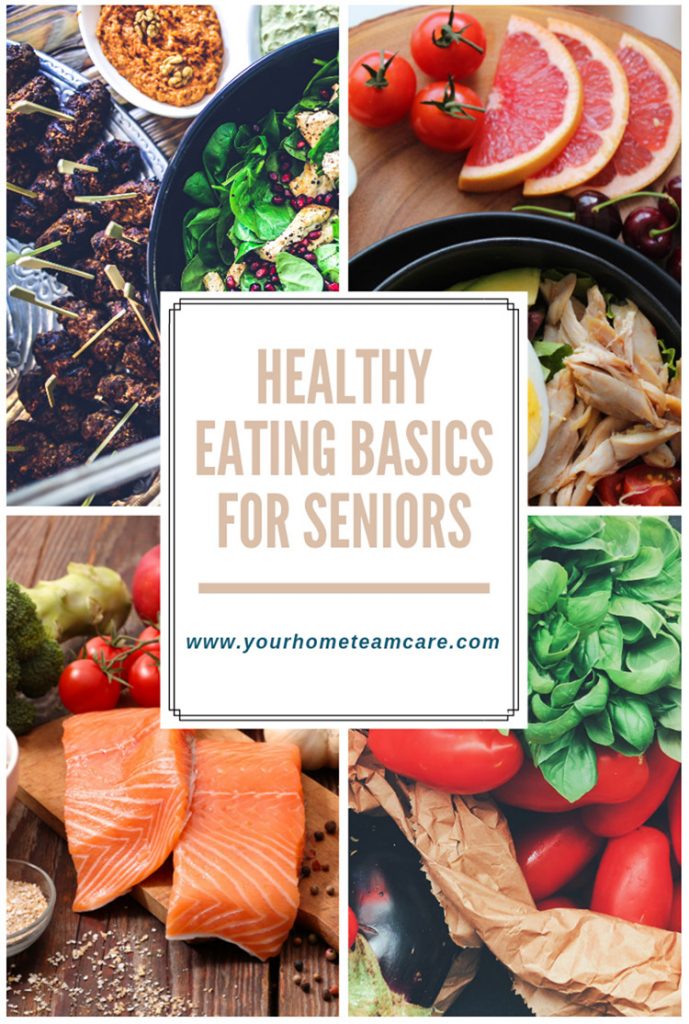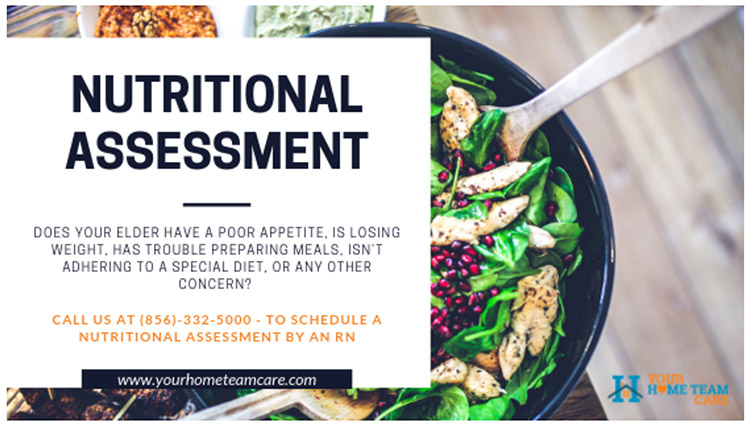The famous Greek physician, Hippocrates once said, “Let food be thy medicine and medicine be thy food.” He hit the nail on the head.
At YHTC, our goal is to help all of our clients to continue living an independent lifestyle, by making healthy choices in every area of their life. One of those areas we want to emphasize is healthy eating habits.
 In reality, most health problems can be avoided and even treated with the right nutrition and diet plan. This is the first step to preventing disease. Eat right and in most cases, you’ll be just fine.
In reality, most health problems can be avoided and even treated with the right nutrition and diet plan. This is the first step to preventing disease. Eat right and in most cases, you’ll be just fine.
Once disease takes root, then you may have no choice but to turn to medication to help resolve the problem. Even then, changing your diet will reap rewards and heal you holistically.
Now let’s look at some of the basics that all seniors can implement when following a healthy eating plan.
1. pH
The pH value refers to how acidic or alkaline a food is. Ideally, you want to be on an alkaline diet. Consuming too many acidic foods can cause inflammation in your body. This will lead to many serious health problems in the long run.
2. Simple Carbs
Simple carbohydrates are the number one cause of the obesity epidemic and the rise of diabetes. White rice, white bread, pasta, donuts, etc. are all simple carbs that are rapidly transformed into glucose in the body. This in turn spikes your blood sugar levels. Over prolonged periods, you become insulin insensitive and the risk of diabetes rises. Avoid simple carbs as much as possible.
3. Complex Carbs
Complex carbs are vegetables, beans, wholegrains, etc. These are slow digesting carbohydrates that do not spike your blood sugar levels too high. That’s why it’s much better to eat wholegrain bread rather than white bread which is made from refined white flour that’s stripped off all nutrients.
4. Protein
As a senior, you’re better off getting your proteins from vegetables and nuts rather than meat. Contrary to popular belief, vegetables contain more protein than meat. You’ll just need to consume a wider variety to meet your protein needs.
5. Fats
Stick to oily fish, cold pressed coconut oil and extra virgin olive oil. Reduce your consumption of foods high in animal fat and trans-fat.
6. Sugar
Avoid or eliminate if possible. Sugar leads to inflammation and is a silent culprit in many health problems. Sugar makes the walls of your arteries sticky and inflamed. When the walls are sticky, they’ll cling on to the fats and cholesterol passing through them. This will lead to plaque build up and arterial blockage. Now you know the real cause of cholesterol build up. It was sugar all along.
7. Salt
Reduce your consumption of salt and you’ll not have blood pressure problems.
8. Portion control
Eat less than you used to eat when you were younger. Your body needs less food. So, reduce your portion sizes and stick to healthy foods.
9. Condiments
There are many hidden sugars, additives and chemicals in condiments such as sauces and ketchup. Keep an eye on those.
10. Small meals spaced out
Stick to 5 or 6 small meals spread out throughout the day rather than 3 large meals that leave you feeling bloated and lethargic. Grazing instead of gorging is the way to go.
11. Artificial sweeteners
Avoid these at ALL cost. Highly toxic, very inflammatory and they do a lot of damage in the long run. Artificial sweeteners are worse than sugar!
12. Water
Drink lots of water and stay hydrated at all times.

These are just a few tips to help keep your body healthy. As we age, our diets need to adapt to our bodies. We can’t be eating the same foods and expect to get away with it. It’s fine when you’re young because your body is strong and healthy.
While it’s best to eat healthy from young, even if you don’t, the effects are not harsh. However, in your later years, you will feel the effects of the food you eat much more severely. So, eat what’s good for you and you will feel fantastic.
“Good health is the groundwork of all happiness.” – Leigh Hunt

